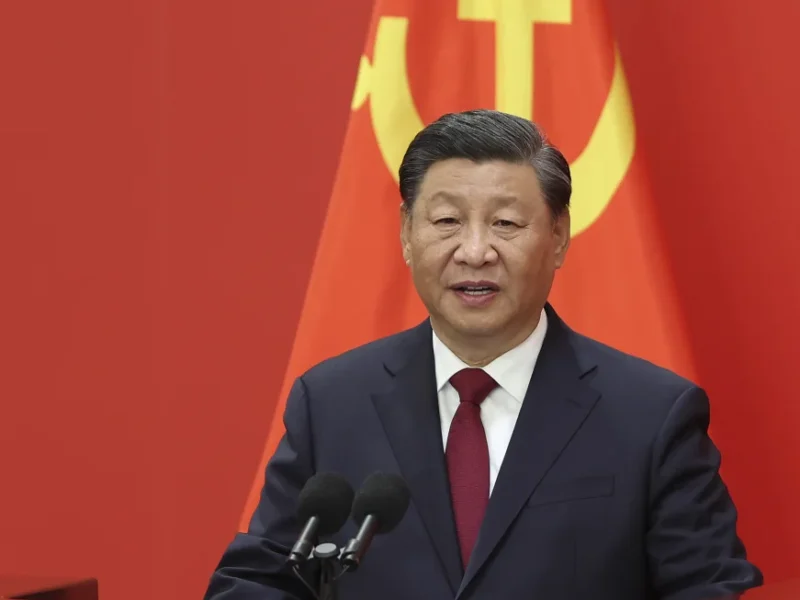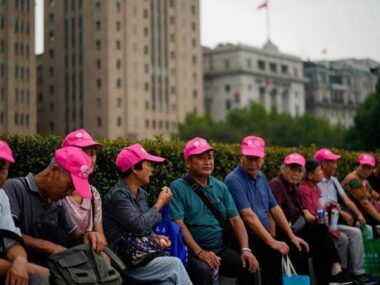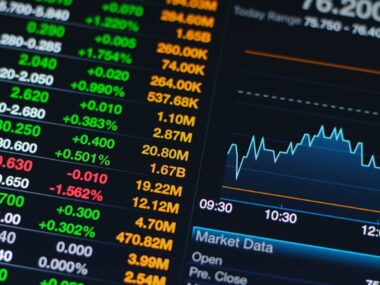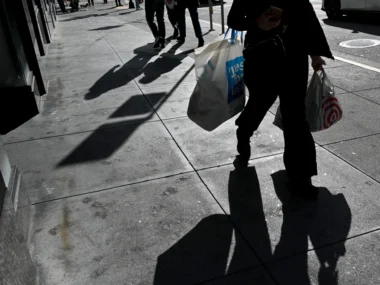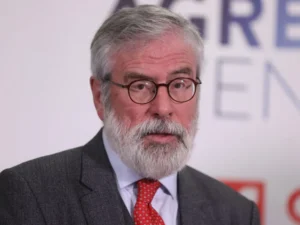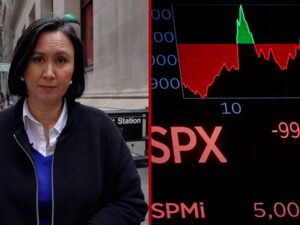Thousands of delegates from across China are convening in Beijing this week for the commencement of the country’s most significant annual political gathering. During this event, known as the “two sessions,” leaders will outline their plans for steering the world’s second-largest economy in the year ahead and address mounting concerns about its challenges.
Chinese leader Xi Jinping and top Communist Party officials are expected to project confidence during this meticulously orchestrated gathering, where the rubber-stamp legislature and top advisory body meet. This year, the largely symbolic event carries increased significance as China grapples with a series of economic issues, including a property sector crisis, significant local government debt, deflation, stock market instability, and tensions with the US over technology.
Xi faces heightened scrutiny as economic difficulties fuel discontent within China. The gathering occurs one year into his unprecedented third term as president, during which he has consolidated power within the party and appointed officials based on loyalty as much as experience.
While Xi remains China’s most influential leader in decades, the challenges his administration faces could shape the country’s future trajectory and impact the global economy. Policymakers, investors, and business leaders worldwide are closely monitoring the event, particularly given the potential strain on US-China relations amid America’s upcoming presidential election.
The Chinese government aims to use the “two sessions” as an opportunity to reassure the public and international community that the economy is on track despite uncertainties. Premier Li Qiang, Xi’s second-in-command, is expected to demonstrate the administration’s ability to address economic concerns and steer the country forward.

Individuals participate in a job fair held in the southwestern city of Chongqing, China, during the previous spring season.
Delegates gather or assemble.
Delegates convene in Beijing’s expansive Great Hall of the People, marking the annual gathering of the nearly 3,000-member legislature, the National People’s Congress, the only occasion each year that it meets in person.
Although the National People’s Congress has limited authority to shape the country’s future direction, as major policies are determined by the ruling party behind closed doors, the “two sessions” serve as a crucial platform for China’s opaque government to unveil its strategies for economic, social, and foreign policies. Key announcements during the event include China’s economic growth target, budget deficit limit, and military spending for the upcoming year.
While the gathering traditionally provides an opportunity for delegates from diverse regions and social sectors to voice their perspectives, this space for exchange has contracted under Xi’s tightened ideological control. Recent restrictions on economic analysts’ social media activities highlight the government’s efforts to curb dissenting voices and maintain ideological unity.
The current economic challenges facing China, including a real estate downturn, stock market instability, high unemployment, and weakened consumer demand, underscore the importance of bolstering societal support and market confidence, as noted by political science professor Xuezhi Guo.
Observers will closely analyze leaders’ statements on key issues such as Taiwan, US-China relations, and efforts to enhance technological innovation amid Washington’s stricter controls on tech exports. Guo suggests a possible shift in tone towards the US, with a temporary departure from aggressive “wolf warrior diplomacy” and a focus on stabilizing the economy.
The appointment of a new foreign minister, following the unexpected removal of Qin Gang last year, may signal this potential shift. Additionally, vacancies left by the removal of Defense Minister Li Shangfu raise questions about Xi’s leadership judgment, though they do not threaten his grip on power. Analysts anticipate these high-ranking positions in China’s cabinet to be filled during this year’s “two sessions.”

In China’s central Henan province, an unfinished apartment complex stands as a stark example of the numerous projects left incomplete by developers amidst a crisis in the property sector.
Economic difficulties or challenges.
Leading up to the gathering, indications suggest that the Chinese government is gearing up to prioritize supporting economic growth in the coming year, although major stimulus measures are not expected.
Neil Thomas, a fellow at the Asia Society Policy Institute’s Center for China Analysis, suggests that Beijing will likely introduce tactical measures during the two sessions to boost short-term confidence in the economy, while maintaining Xi’s overarching strategy of state-led development. One of the key issues to monitor during the event is the announcement of the economic growth target for 2024, which Premier Li is set to deliver on Tuesday.
Analysts anticipate a relatively ambitious growth target of “around 5%,” indicating policymakers’ continued emphasis on economic growth despite mounting challenges.
Market reactions will also be closely observed, with some skepticism surrounding the potential impact of confidence projections and measures announced at the gathering in restoring optimism.
However, any lack of immediate improvement is unlikely to undermine Xi’s authority. While economic challenges may erode public trust in the government’s ability to deliver growth and improve living standards, Xi’s hold on power remains firm. Popular approval matters less to him than elite control, and the economy is far from experiencing the type of collapse that could threaten the party’s authority.

